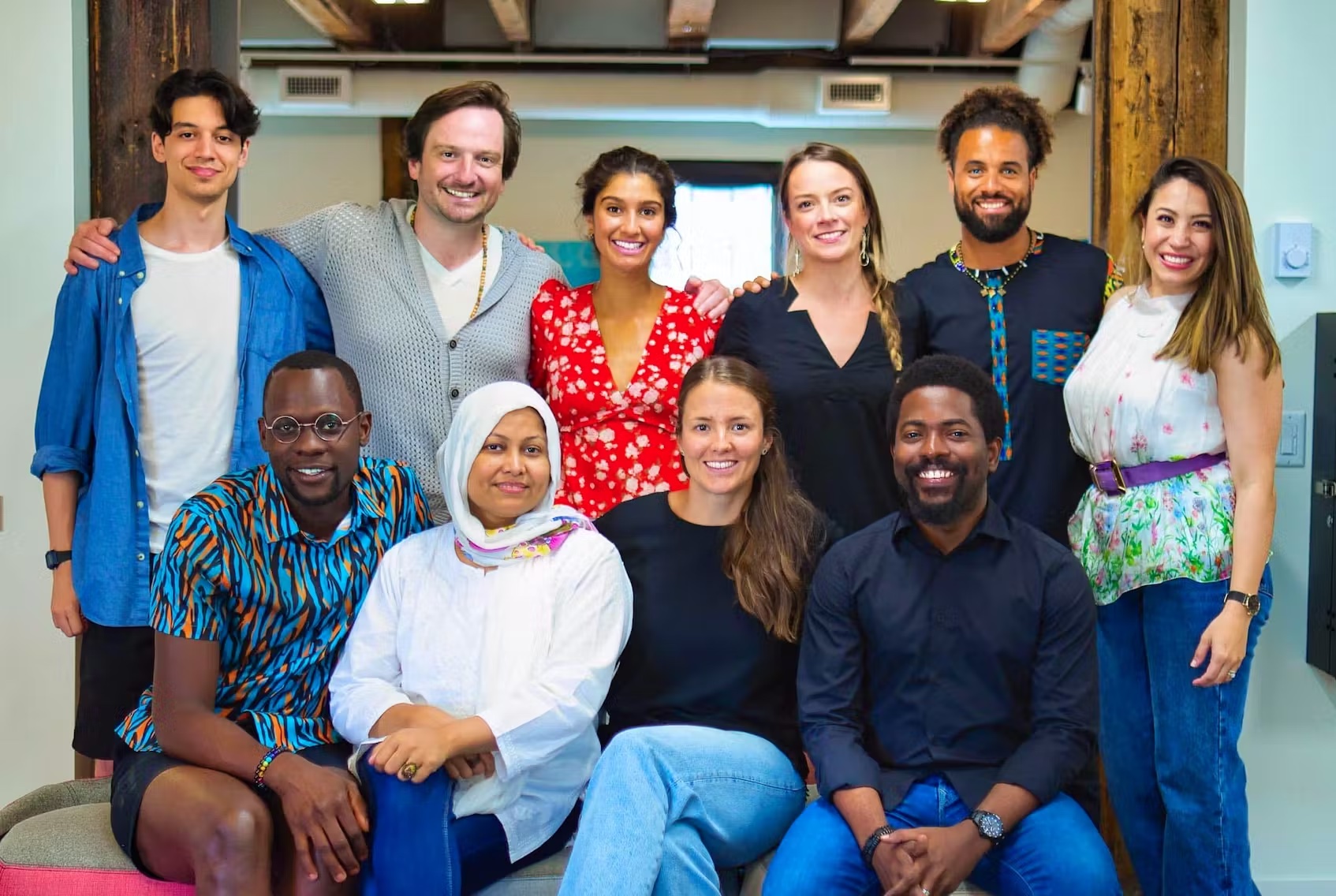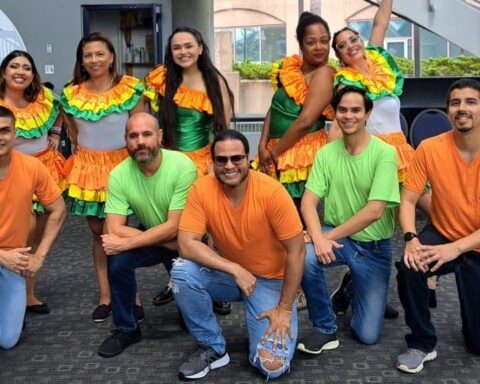It was April 2014 when Julieta Diaz-Beltran was about to have the course of her life forever altered.
Until then, she had envisioned returning to Europe, where she had applied to a graduate program to further her studies.
However, the European dream came crashing down due to a bursary that did not materialize.
The morning of April 4, though, Diaz-Beltran received an email from Saint Mary’s University that confirmed her acceptance to a Master’s program in International Development Studies, and even better, offered her a scholarship to confirm her enrollment.
Changing her dream
It was a total surprise, and the shock was even bigger for those around her.
“I remember everyone was like, ‘When did you apply to go to Canada?’ I had kept it under the radar, because in all honesty, I didn’t believe that’s what would happen, as I had my eyes set on a different dream,” she said.
“And yet here I was, looking at a letter that said that’s where I was going.”
Diaz-Beltran reminisces of the early stages of her life as a New Canadian. It’s been a journey that has been filled with serendipitous moments, love, and also spine-chilling scares, which were overcome with a lot of faith.
“I just felt that if that’s where I was going, it was of a larger purpose, and the same goes for anything else I went through,” said Diaz-Beltran.
Placemaking 4G
Now Diaz-Beltran is a Placemaker and Consultant at Placemaking 4G, also known as P4G, a Halifax-based company that helps organizations build stronger teams by fostering a culture of belonging.
P4G accomplishes this through different channels – from consulting and training workshops to a holistic, purpose-based recruitment approach.
It is a mission that, earlier this year, earned them the recognition of Halifax Small Business of the Year by the Halifax Chamber of Commerce, which “celebrates the successes of our thriving local business community,” according to the organization.
For Diaz-Beltran, her role represents a unique opportunity to leverage her experiences as a newcomer, and her passion for building bridges that help people thrive and shine with their own light.
“For me, I remember my first challenge, which came up right when I began my studies. I thought my English was good, and I found myself struggling to understand what I was reading,” she recalls, joking, while at the same time, acknowledging that reality tends to be a stark contrast to expectations.
Unexpected pivots
By taking a proactive approach, fueled by a constant desire to grow and develop herself, Diaz-Beltran was settling into her post-graduation life but a difficult family situation resulted in her moving back to Mexico to support her loved ones, albeit temporarily.
However, this would give her an experience that would be pivotal for the work that she is doing now.
“I am from Culiacan, Sinaloa, which is on the train route that many migrants from South and Central America take when attempting to reach the United States, and I started volunteering at a shelter called Casa del Migrante (which in English stands for Migrant House),” says Diaz-Beltran.
In hindsight, all the dots can be connected.
“Working with people who have given up so much to aspire for a better life somewhere else helped me see all the things that need to happen, all the feats that need to be overcome, for someone to be able to say ‘I belong here’ and really feel like that’s their home, instead of being on survival mode all the time,” she says.
“This guided me to see that we are all instruments in and for people’s life journeys.”
‘I couldn’t do it anymore’
It wasn’t until 2018 that, motivated and encouraged by her family, Diaz-Beltran decided to pack her bags and return to Canada, where she started to build a career with ISANS–the Immigration Services Association of Nova Scotia.
But, once again, major changes were yet to come.
“One day, in the morning, I hit my head with a door in the kitchen, and initially, I thought it would be fine, that it was something minor, so I kept going, until I couldn’t do it anymore,” says Diaz-Beltran.
At the time, she was in the process of obtaining her Permanent Residency, getting married, and working two jobs.
All of these factors led her to live at a frenetic pace, despite the ongoing brain fog and a constant sense of anxiety and restlessness that was the result of an undiagnosed concussion.
“My husband is a lawyer, a profession which does not have the most straightforward path to transition to a new country. So I was the one working, and I felt I had to keep going to keep everything afloat,” she says.
Miracle she was alive
But then, one day, the pain was too much to bear, and during a visit to her neurologist, he suggested that she stop all activity immediately, and claimed it was a miracle that she was still alive.
Diaz-Beltran, turns out, had a post-concussion brain injury, and unless she followed a rigorous treatment, it would not go away.
Fortunately, her husband found a job around that time, and her mom was able to travel to Canada to help take care of her.
“It was the worst, best thing that happened to me, because, incredibly, it gave me this sense of peace that I was where I was meant to be. We have all these plans and dreams for life. But for me, the choice was very clear. Either I stopped, or life would end by itself.”
Putting her experiences in her work
As she chronicles her recovery process, Diaz-Beltran finds yet another intersection point between what she went through and the way in which it impacts her work and vision of life today.
“What would have happened to me if I didn’t have the support system that I have? And yet, this is the reality that many people find themselves into, especially newcomers,” she says, accentuating how this experience gives her additional resolve to make a difference with Placemaking 4G, and to become that beacon of support that many newcomers need.
And it’s noted by those she helps.
“Julie, she was so supportive, and always had kind words to encourage me as a candidate. She never made me feel like I was wasting my time; rather, she made me feel important, and her ability to see ‘you in you’ was awesome,” said George Mbara, who moved from Nigeria and now works as a program manager at the College of Physicians & Surgeons of Nova Scotia.
Building bridges
By adopting a purpose-based approach and going beyond conventional recruitment practices, Diaz-Beltran has been able to build bridges between companies that are looking for talent and newcomers who are looking for jobs.
To do this, she identifies common threads between employers and employees, and sees where someone could be a good match in a way that goes beyond a job description.
“Many times, bad experiences happen because of misunderstandings,” she says. “And unfortunately, these misunderstandings often undermine newcomers’ confidence. Intentionally, I make sure that, even when they get a no for an answer, they feel seen, valued, and acknowledged.”
For Nina Nersesova, who secured a position at the TEAMWork Cooperative, Diaz-Beltran’s help was instrumental in landing the job.
“Despite my lack of direct experience for the job I applied for, Julie’s guidance helped me recognize the value of my transferable skills and personal strengths,” said Nersesova, who immigrated from Georgia as an international student, and with P4G’s help, got a position as an inclusion specialist and funding coordinator.
“Her dedicated, heartful approach provided a sense of grounding and confidence during the interview process, ultimately leading to an unexpected job offer that surpassed my initial expectations.”
Not always easy
However, sometimes, the process is not as easy, something that Diaz-Beltran remembers as she recalls a recent situation.
“We had a prospective job seeker, a young newcomer, and she immediately discarded herself prior to the process, because she was used to no one returning her calls or responding to her applications,” she says.
“But going through the process with her, I made sure that, at all times, she felt like she mattered, and that her effort, skills, and experiences were valuable.
“And then, it hit me once more that for many newcomers, unfortunately, this might not always be the case. So it just becomes increasingly important to me to keep doing this purposefully.
“I am proud to support newcomers because I am one. It might not always be easy, but when the why becomes stronger, the how becomes possible.”
_____
Story and photos were produced in partnership between New Canadian Media and SaltWire.
Javier Ortega-Araiza has multiple global experiences as a storyteller and social entrepreneur having travelled to over 30 countries. Now based in Toronto, he is a published author in both English and Spanish."






